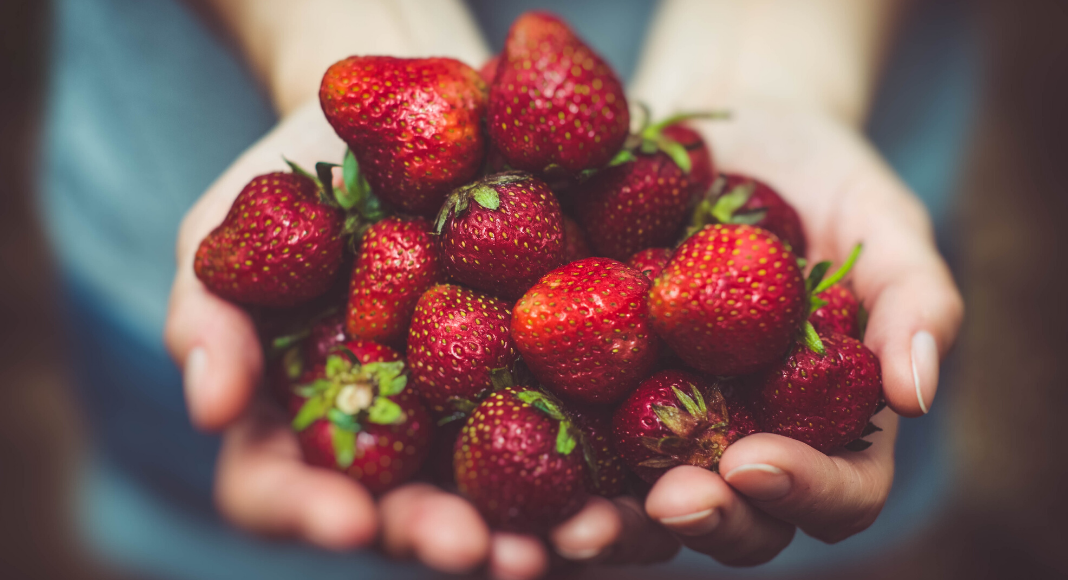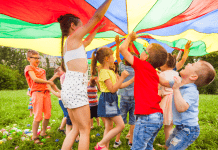If you’re looking for the right preschool for your child, chances are you’ve explored the possibility of a Montessori education. And if you’ve stepped foot into a Montessori classroom, you know it’s very different from a traditional preschool class. But, the differences extend beyond classroom materials and setup and knowing them can help you choose the school that’s best for your child.
Here are some of the main differences between Montessori and traditional preschools.
Methods and Purpose
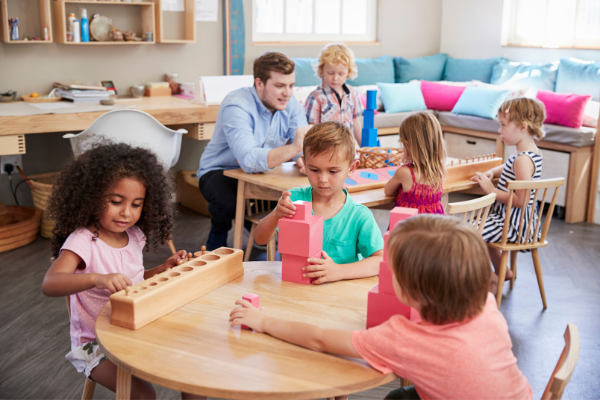
Montessori and traditional preschools differ from the get-go, with different teaching methods. Traditional preschools are teacher-led, and activities are often extrinsically motivated, meaning the child receives an external reward for a job well done.
Montessori, on the other hand, fosters intrinsic learning, meaning the child learns independently and the reward is internal (a sense of pride, confidence, etc.). This independent learning model allows each child to learn at his or her own pace while also fostering independence.
These factors remove competitiveness from the classroom and instead create a collaborative, peaceful space.
Montessori Preschool Materials
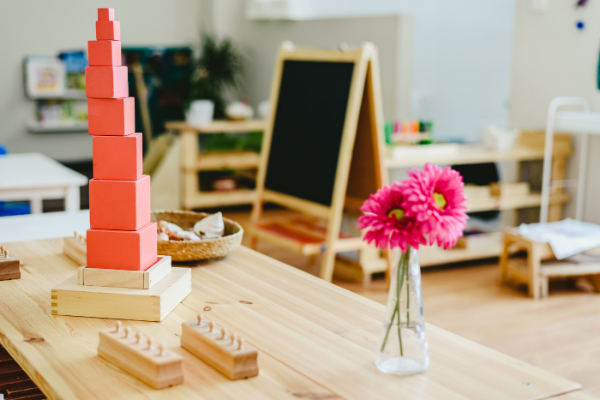
As mentioned earlier, the Montessori classroom looks very different from a traditional preschool classroom, and much of this is due to the materials used.
Traditional preschool classrooms look just as you’d imagine, and most (if not all) work is done to satisfy curriculum requirements. Lots of activities are done on pencil and paper, with the goal of mastering abstract concepts. Most of the time, materials have one correct use and questions have one correct answer.
Montessori work takes another track, with materials helping children master concrete concepts through hands-on lessons before moving onto the abstract. Think about numbers, for example. Children in the Montessori classroom learn to recognize numbers at the same time as they learn the amounts associated with each by using counting beads. After this is mastered, they can more easily understand the abstract concept of numbers and math.
There are usually many ways to solve “problems” presented by Montessori materials, and it’s up to the child to discover them. Of course, the teacher is involved and helps guide the process. But the focus is on the child as an individual and how he or she works through the problems presented.
Overarching Lessons
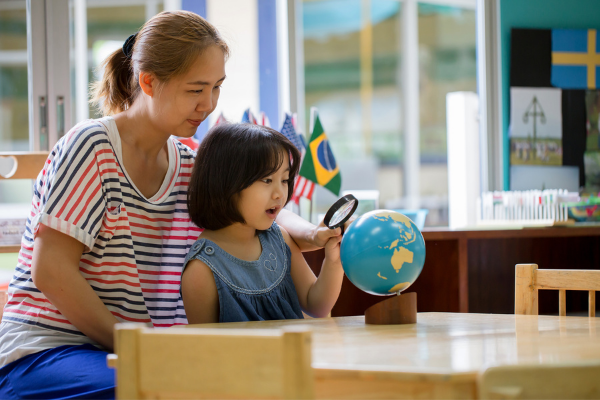 Of course, preschools have great benefits in terms of socialization and building the foundations for literacy and other important skills. But preschools don’t just teach these concrete skills, they also teach children how to learn.
Of course, preschools have great benefits in terms of socialization and building the foundations for literacy and other important skills. But preschools don’t just teach these concrete skills, they also teach children how to learn.
Children in traditional preschools are dependent on their teachers and the curriculum. They’re dependent on the teacher for direction and for the answers. He or she must also keep up with the class, as everyone is on the same page.
The outcome? Children learn to get things done efficiently. They develop intellect. They deliver good “product” (test results, for example) that are rewarded by the teacher either through praise or a good grade.
Conversely, children in Montessori preschools work at their own pace, and with the materials that interest them. Focus is on the process vs. the product.
This teaches kids to become independent problem solvers. They develop a strong sense of self. They become self-motivated learners. And these factors lay the foundation for a life-long love of learning.
Ready to learn more about the Montessori experience?
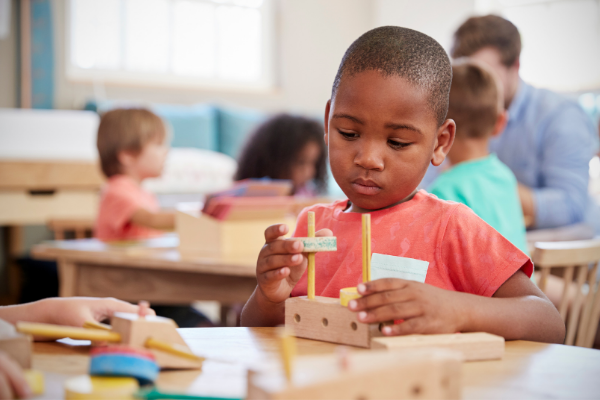 If you think your child would benefit from the Montessori method – the emphasis on independent learning, the warm community, and more – it’s time to explore a Montessori preschool!
If you think your child would benefit from the Montessori method – the emphasis on independent learning, the warm community, and more – it’s time to explore a Montessori preschool!
Montessori School of Fairfax is the perfect place to start. Located in Chantilly, the school provides an environment where children grow into caring, respectful, and responsible adults. The mission of Montessori School of Fairfax is to provide the right learning environment for each stage of a child’s development as they progress through our school.
Its teachers are dedicated to providing education that fosters a love of learning, engaging children who are happy and respectful of others, and who show compassion in a world full of diverse ideologies.
Get to Know Montessori School of Fairfax
 If you’d like to learn more about Montessori School of Fairfax, sign up for one of the school’s weekly information sessions on Wednesdays at 9:30 AM. Or, contact the admission office at 571.323.0222 or by email.
If you’d like to learn more about Montessori School of Fairfax, sign up for one of the school’s weekly information sessions on Wednesdays at 9:30 AM. Or, contact the admission office at 571.323.0222 or by email.




